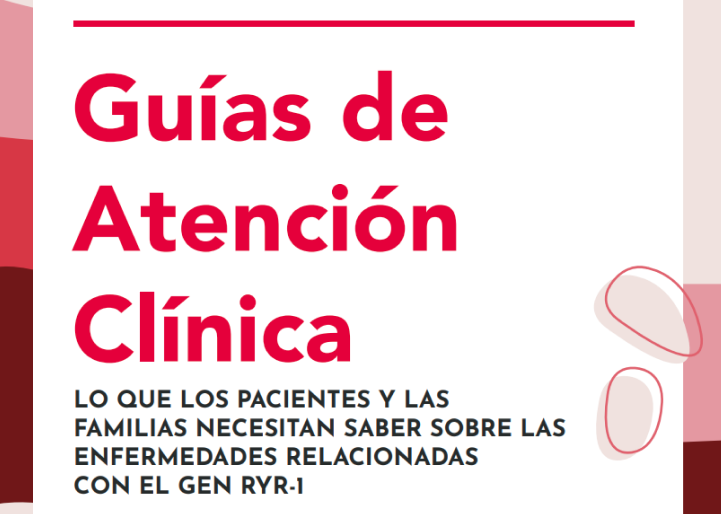
There are now versions of the document translated into the following languages: Arabic, Chinese (Simplified), English, French, German, Spanish, and Vietnamese.
In September 2020, The RYR-1 Foundation published the Clinical Care Guidelines: What Patients & Families Need to Know About RYR-1-Related Diseases. This handbook is written in non-technical, easily understood language to empower patients and families with RYR-1-related diseases to improve their care and quality of life. There are now versions of the document translated into the following languages: Arabic, Chinese (Simplified), English, French, German, Spanish, and Vietnamese. These are freely available at www.ryr1.org/ccg.
The RYR-1 Foundation is making every effort to ensure the Clinical Care Guidelines is widely accessible to the entire RYR-1 community, regardless of geographic location, spoken language, socioeconomic status, or education level. As the only organization dedicated solely to RYR-1-related diseases and with a large worldwide following, The RYR-1 Foundation is confident that it is the ideal organization to not only create the Clinical Care Guidelines, but also to ensure its availability to the maximum number of people.
In November 2019, The RYR-1 Foundation was awarded a $50,000 grant from The Oscar and Elsa Mayer Family Foundation to produce a handbook written exclusively for patients and families affected by RYR-1-related diseases. The Clinical Care Guidelines is over 100 pages long with content that will help the RYR-1 community better understand RYR-1-related diseases. This online handbook utilizes numerous educational graphics and illustrations. Many topics are covered, including the role of calcium in RYR-1-related diseases, modes of genetic inheritance, and potential therapies. Each chapter contains a link to extensive online resources that we have provided. A copy of the Clinical Care Guidelines downloadable at www.ryr1.org/ccg is freely available. On this website, there is also a brief video that introduces the Clinical Care Guidelines and explains some of its unique features.
“By creating versions of the Clinical Care Guidelines in several different languages, The RYR-1 Foundation will be able to help more people worldwide who are affected by this condition,” says Michael F. Goldberg, MD, MPH, President of The RYR-1 Foundation. “This a major step forward for not only The RYR-1 Foundation, but the entire RYR-1 community.”
This project was funded in its entirety by a grant from The Oscar and Elsa Mayer Family Foundation; The RYR-1 Foundation is extremely appreciative of its support.
About The RYR-1 Foundation
The Pittsburgh, Pennsylvania-based 501(c)(3) public charity was launched in October 2014 by members of the Goldberg family, who have been affected by an RYR-1-related disease. It is currently the only organization that exists solely to advocate for and serve the needs of patients with RYR-1 myopathy, the most common cause of congenital myopathy. The mission of The RYR-1 Foundation is to support research leading to effective treatment or a cure for RYR-1-related diseases, to educate physicians about these diseases, and to provide patient/family support and advocacy.
Disclaimer: The information and advice published or made available in the “Clinical Care Guidelines” are not intended to replace the services of a physician, nor does it constitute a physician-patient relationship. It is for educational purposes only. This advice should be taken in conjunction with medical advice from your medical clinician whom you should consult in all matters relating to your health, in particular with respect to symptoms that may require diagnosis or medical attention. Any action on your part in response to the information provided in this booklet is at your own discretion. Ultimately, if you have concerns about your health, including RYR-1-related diseases, you should consult your healthcare provider.

